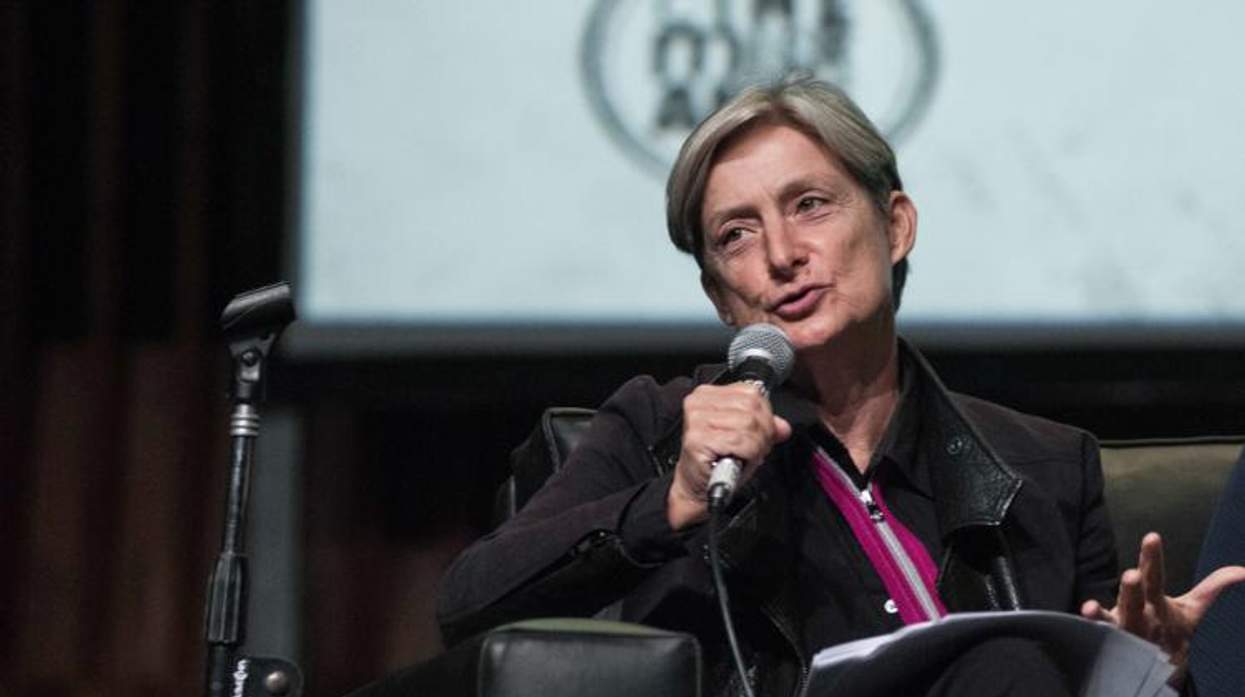The Guardian is getting a barrage of criticism after removing a passage from an interview with gender theorist Judith Butler calling anti-transgender activism a strain of fascism.
The Butler Q&A was published Tuesday and originally included this quote from Butler, a queer and nonbinary academic who has written extensively about gender: "The anti-gender ideology is one of the dominant strains of fascism in our times. So the Terfs [trans-exclusionary radical feminists] will not be part of the contemporary struggle against fascism, one that requires a coalition guided by struggles against racism, nationalism, xenophobia and carceral violence, one that is mindful of the high rates of femicide throughout the world, which include high rates of attacks on trans and genderqueer people."
But then the publication removed that section and some others, including a question from interviewer Jules Gleeson about a recent incident at Wi Spa in Los Angeles, where a patron reported seeing a penis exposed in the women's area. There was originally some doubt about the patron's story, and trans-inclusionary and anti-trans protesters have clashed several times outside the spa, but now a trans woman has been charged with indecent exposure in the incident. She maintains her innocence.
After the cuts were made, The Guardian posted a cryptic explanation, saying, "This article was edited on 7 September 2021 to reflect developments which occurred after the interview took place." Screen shots of the original have been shared widely on social media, leading to accusations that the publication gave in to anti-trans activists.
The author is among those making the accusations. "Habitual bigots online are going to do their thing, and usually respond to pieces without even reading them," Gleeson said in a written statement to Motherboard, Vice's tech section. "What's been more unexpected was how quickly the publication folded. I was expecting the Guardian US to stand by me as a writer, and while I have received apologies from their side, this has been a draining and consuming episode that I didn't expect."
"I have not encountered anything like this," Gleeson continued. "A few people I've spoken to, including at the Guardian US, said this is unprecedented." The Guardian is based in the United Kingdom, where the TERF movement is strong, but has U.S. operations as well.
Gleeson said editors have told her there's nothing to be done as the decision to cut those passages was a done deal. Butler has also contacted The Guardian but hasn't received a response yet, Gleeson said.
Contacted by Motherboard, a Guardian spokesperson said Gleeson's question about the "furore" (British spelling) surrounding Wi Spa didn't mention "new facts" about the incident, apparently meaning the arrest. "In light of those developments, the question regarding Wi Spa in the interview should have been reviewed again prior to publication, but this did not happen," a Guardian statement reads. "This is a departure from our usual editorial standards.
"We have not censored Judith Butler but addressed a failure in our editorial standards. This particular question omitted the new details that had come to light, and therefore risked misleading our readers. For that reason we decided to remove both the question and Judith Butler's answer. ... The Guardian remains committed to reporting on the rights of trans people in the US and globally, including the worrying attacks on trans people and their allies by far right groups."
Gleeson said she understood that the "new details" had turned the Wi Spa incident "from a weak example to a counter-productive one." But she said her description of a "furore" at the Spa was still accurate and that her references to the Proud Boys and other far-right groups tapping into transphobia remained relevant. She was willing to change the question but was adamant that Butler's answer needed to remain part of the story. Guardian editors did not agree, and Gleeson was not happy.
"I'm loath to make an appeal to our identities at this point, but it seems a fine state of affairs when an intersex woman interviewing one of the few non-binary philosophy professors in the world is decried online as 'misogyny,'" Gleeson told Motherboard. "One last question for the editorial teams at The Guardian: why should 'Gender Critics' be beyond criticism?"




































































Charlie Kirk DID say stoning gay people was the 'perfect law' — and these other heinous quotes